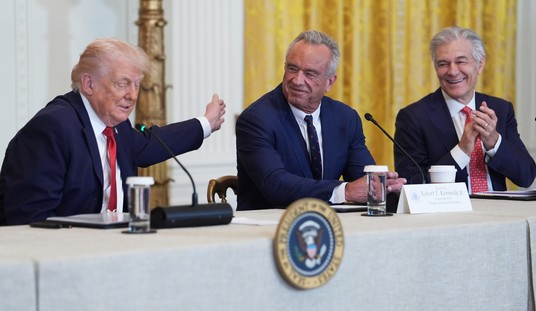The introduction of the new Senate health care bill – authored by senators Bill Cassidy of Louisiana, Lindsey Graham of South Carolina, Dean Heller of Nevada, and Ron Johnson of Wisconsin with an assist from former senator and presidential candidate Rick Santorum – comes after so many failed Obamacare repeal efforts that you can forgive the public for greeting it with caution. But the current law is a disaster – premiums and deductibles are spiraling upward while the latest official estimates show 1,478 counties, over 45 percent of the counties in America, will have just one insurance company in 2018. The 2017 reconciliation process protecting a Republican health care bill from filibuster expires on September 30. Graham-Cassidy-Heller-Johnson (GCHJ) is the last train leaving the station. All aboard.
GCHJ is a simpler bill than Republicans have previously offered. It repeals the individual mandate, which is imposing harsh tax penalties on people who can't afford Obamacare's sky-high premiums. According to the IRS, 83.7 percent of the nearly eight million individual mandate penalty payers made less than $50,000 in the most recent year for which data are available and 46.1 percent make less than $25,000. While the Congressional Budget Office still likes to pretend the mandate works, reality shows it leaves many Americans of limited means not just uninsured, but poorer than they were before.
GCHJ also repeals the employer mandate, which is holding small businesses under 50 employees. According to University of Chicago economist Casey Mulligan, the mandate has destroyed 250,000 jobs. The employer mandate also has induced many employers to slash hours to keep workers under Obamacare's 30 hour per week threshold. Many of those affected are adjunct professors at local colleges and other employees of cash-strapped local governments, school districts, and library districts.
GCHJ repeals Obamacare's limitations on Health Savings Accounts, expands contribution limits, and allows premiums to be paid from them – a critical reform that would give employers the option of making pre-tax HSA contributions that employees could use toward purchasing plans in the individuals market.
GCHJ repeals the Obamacare tax on medical devices, a terrible tax that undermines the medical innovation we all depend on for longer, healthier lives and punishes innovative, early-stage companies with a tax on gross revenues even if they are not profitable.
Recommended
Unlike previous Republican bills, GCHJ retains the rest of the Obamacare taxes, and uses them starting in 2020 to fund a formula-based block grant to the states that replaces both Obamacare's expansion of Medicaid to able-bodied working-age adults and the vast subsidies that flow through Obamacare's exchanges. That means a cut in federal funding for Massachusetts, which receives a vastly disproportionate share of all Obamacare spending, and to a lesser extent California and New York. (Those three states currently receive an eye-popping 37 percent of all Obamacare spending.) It means increased funding for most other states.
For all states it means real control of health dollars and health policy without micromanagement by a vast federal bureaucracy. Liberal states could choose to maintain Obamacare's exchanges and subsidy structure, while conservative states move in very different directions that emphasize individual choice and competition. Not every state would succeed – but few could do worse than the acute crisis the country now faces as Obamacare crumbles, and the most successful states would serve as models for others whose own initial approaches don't fare as well.
Unlike previous health care bills that sought to replace a failed Democratic one-size-fits-all national vision of health care with a single Republican vision, GCHJ takes a more modest approach that repeals Obamacare's most grievous injuries to constitutional freedom and then uses a block grant to allow the states to sort out the specifics for themselves.
President Trump welcomed the bill's introduction, saying: "inaction is not an option, and I sincerely hope that Senators Graham and Cassidy have found a way to address the Obamacare crisis."
The president is right and Congress should get GCHJ to his signing desk as soon as possible.

























Join the conversation as a VIP Member